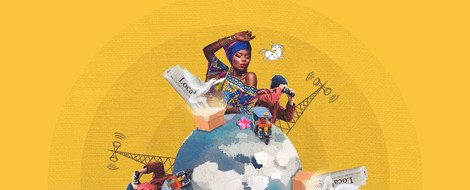Your podcast discovery platform
Curious minds select the most fascinating podcasts from around the world. Discover hand-piqd audio recommendations on your favorite topics.

piqer for: Deep Dives Global finds Globalization and politics Health and Sanity
Daria Sukharchuk is a journalist based in Berlin, where she works as a news anchor for Russian-language OstWest.tv. Her writing has appeared in Motherboard and ZEIT Online, Cosmopolitan, as well as Afisha (Moscow's leading city magazine). She specializes on the topic of human rights, migration, and mental health.
She has her BA in Chinese history, and, never having forgotten her history background, has also contributed to the educational project1917.com.
Who Are The Opposition Activists In Russia And Why It's Not About Class
A researcher from the University of Amsterdam interviewed six young Russian political activists about their background. They are all active in different branches of society: teaching refugee children, running a hospice, fighting for animal rights or freedom of information ... If anything, this article provides a very good insight into what political resistance looks like in Russia.
On March 26, Russia was shaken by another wave of mass protests. And the same question was asked: who went to them, despite the risk of police brutality? It is tempting to cast both waves of protest as middle-class. But the reality seems to be very different: neither the research of 2012 nor this short series of interviews show that it's middle-class. On the contrary, many people who have dedicated significant parts of their time to activism are close to the poverty line. If you understand the everyday reality of today's Russia, it is clear why.
Firstly, it is harder for NGOs to get funding through government grants if they are not associated with the Kremlin. Secondly, much was done to stigmatize the "foreign agents" (NGOs that receive foreign funding) in the public eye — and this may have a negative effect on the private donations. Thirdly, people who publicly oppose the regime can find it harder to have good jobs because of the stigma around political resistance.
It is very tempting to cast protesters as a distinct group of people. Indeed, this is what happened in 2012, when the protesters in Moscow (where the demonstrations were the most active) were simply labeled as "over-entitled hipsters out of touch with the rest of the country". The same seems to be happening now when March 26 marches are called "school kids' protests". But the reality is more complex.
